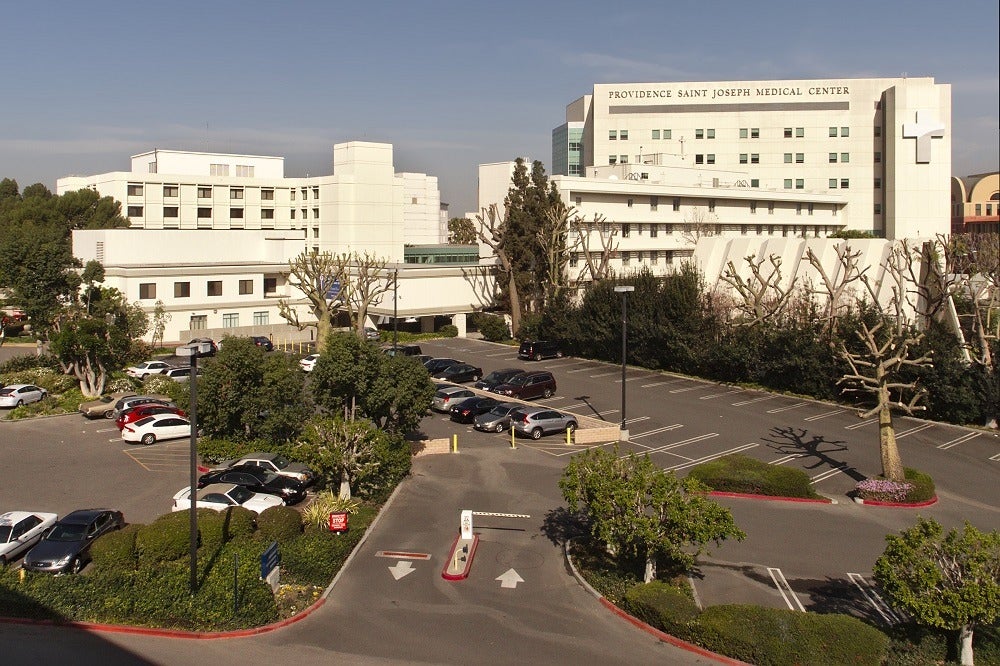Providence St. Joseph Health announced a multi-year strategic alliance to accelerate the digital transformation in its hospitals with Microsoft's AI tools

The two companies have discussed their vision for a “hospital of the future”(Credit: pxhere)
Providence St. Joseph Health (PSJH) has teamed up with Microsoft to develop and deploy an AI-driven cloud-based health IT system across its US hospitals and care facilities.
The multi-year alliance will combine the power of Microsoft’s cloud, AI, research capabilities and collaboration tools with the clinical expertise and care environments of the national, not-for-profit health organisation to help clinicians diagnose and treat patients.
The move is part of Microsoft’s latest run at the healthcare business after previous efforts, including acquiring IT software called Amalga, which aggregates medical data for doctors to draw broader conclusions, failed to gain much traction.
Dr Rod Hochman, CEO of PSJH, said: “Providence St. Joseph Health has been on a journey to transform healthcare and achieve a vision of health for a better world.
“We’re excited to accelerate that journey by collaborating with Microsoft.
“Together, we’ll support doctors, nurses and all caregivers by equipping them with innovative tools and technology that make it easier to do the vitally important work of improving lives.”
What benefits the partnership between Providence St. Joseph Health and Microsoft will bring to the hospital
Microsoft recently released a report called How AI can enable a Sustainable Future that predicted the technology will contribute more than $15tn to the global economy by 2030.
Providence, which owns hospitals in Washington and six other states, will use the Azure cloud platform on Microsoft 365 to enable further productivity through data-driven clinical and operational decision-making by doctors.
Microsoft’s Azure server enables AI and machine learning to quickly filter through large volumes of collected data to generate useful information.
Interoperability standards like Fast Healthcare Interoperability Resources (FHIR) will also be incorporated, which use theoretical and logical models to provide a system for the exchange of data between healthcare applications.
This will be used along with other Microsoft 365 services, such as Teams for PSJH’s 119,000 caregivers, and Dynamics 365 to support patient engagement.
The new effort will also involve improving the electronic medical record so that it’s easier for doctors, nurses and other healthcare providers to access and share information.
The initial roll-out to these platforms will be at the PSJH hospital in Seattle, with the aim being to eventually scale these innovations across its entire health system.

Satya Nadella, CEO of Microsoft, said: “Our alliance with Providence St. Joseph Health brings together the expertise of one of the largest and most comprehensive health systems in the country with the power of Azure, Microsoft 365 and Dynamics 365.
“Our ambition is to accelerate Providence St. Joseph Health’s digital transformation and to build new innovations together that are designed to improve health care delivery and outcomes.”
Still in its early stages, the two organisations ultimately plan to develop a portfolio of integrated products designed using natural language processing and machine learning to improve health outcomes and reduce the total cost of care.
Earlier this year the company launched a series of new tools built on its Azure cloud platform meant to allow more efficient communication among providers and secure sharing of personal health information.
These include new the Health Insurance Portability and Accountability Act compliant communications tools for healthcare teams to better coordinate and collaborate, as well as a customisable bot that can be used to build healthcare-oriented virtual assistants and chatbots.
In addition, UCLA Health announced in May a partnership with Microsoft Azure cloud services to use healthcare data for medical research and precision medicine as the tool also enables the health system to employ predictive analytics to improve disease prevention.
